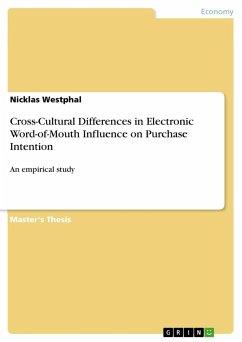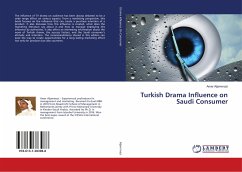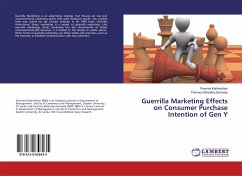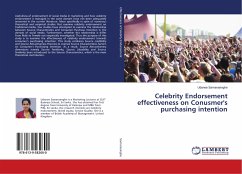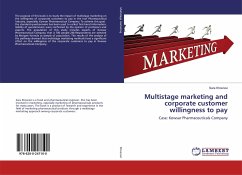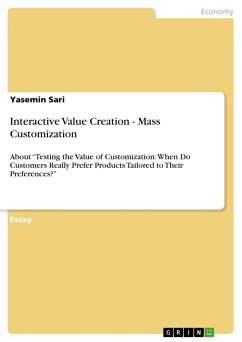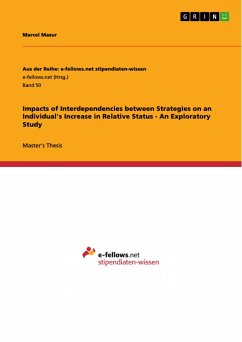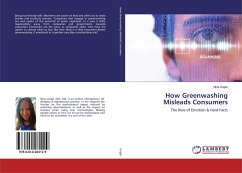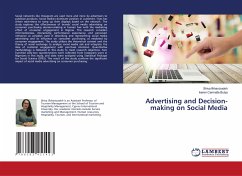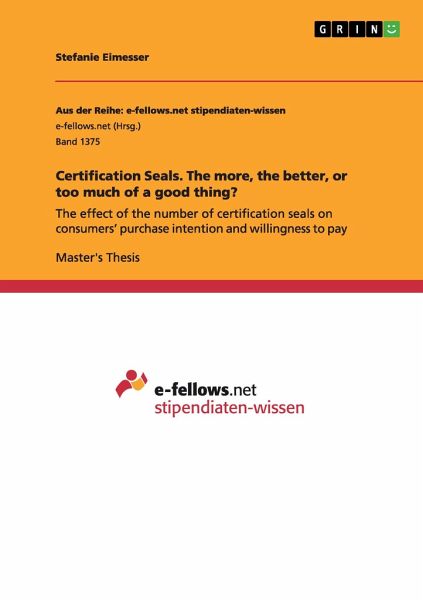
Certification Seals. The more, the better, or too much of a good thing?
The effect of the number of certification seals on consumers' purchase intention and willingness to pay

PAYBACK Punkte
0 °P sammeln!
Master's Thesis from the year 2013 in the subject Business economics - Marketing, Corporate Communication, CRM, Market Research, Social Media, grade: 8.5 (out of 10.0), Erasmus University Rotterdam (Rotterdam School of Management), course: Marketing Management, language: English, abstract: This thesis investigated whether and how consumers' purchase intention and willingness to pay for food products are affected by the number of certification seals and the level of pretension of a product benefit claim presented on the product packaging. Its objective was to find the ideal number of seals and ...
Master's Thesis from the year 2013 in the subject Business economics - Marketing, Corporate Communication, CRM, Market Research, Social Media, grade: 8.5 (out of 10.0), Erasmus University Rotterdam (Rotterdam School of Management), course: Marketing Management, language: English, abstract: This thesis investigated whether and how consumers' purchase intention and willingness to pay for food products are affected by the number of certification seals and the level of pretension of a product benefit claim presented on the product packaging. Its objective was to find the ideal number of seals and level of claim pretentiousness where purchase intention and willingness to pay are highest and to give an explanation about consumers' thought processes that may lead to this outcome. To this end, the role of consumers' perception of the product quality and the manufacturer conscientiousness has been taken into consideration.With reference to existing literature on product certification as well as concepts originating from human information processing theory and advertising research this study suspected that consumer attitudes and purchase intentions first increase up to a maximum point before decreasing again as the number of certification seals being employed simultaneously rises. The author furthermore hypothesized that consumers react negatively to a more pretentious benefit claim in terms of less favourable product and manufacturer attitudes and lower purchase intentions. The interaction effect of the number of seals and the pretentiousness of a benefit claim on manufacturer conscientiousness perception, product quality perception, purchase intention and willingness to pay was assumed to be likewise of inverted-U nature after the presence of a certification seal has offset the negative effect of a pretentious claim.These hypotheses about the direct impact of the two types of extrinsic product attributes as well as additional hypotheses about the mediating role of product quality perception and manufacturer conscientiousness perception in the relationships between the extrinsic product attributes and consumers' purchase intentions have been tested by means of a survey-based framed field experiment in a real-world retail environment. A factorial 5 (# of seals: 0,1,2,3,4) x 2 (claim: modest, pretentious) between-subject research design exposed grocery shoppers randomly to one of 10 different experiment conditions consisting of jars of jam of a fictive brand with a different number and combination of the 4 seals 'BIO', 'Bioland', 'Demeter' and 'Naturland', and the two organic claims "Simply organic" and "More organic does not exist!". The collected primary data has been analysed by means of multivariate Analysis of Variance and Regression Analysis.




